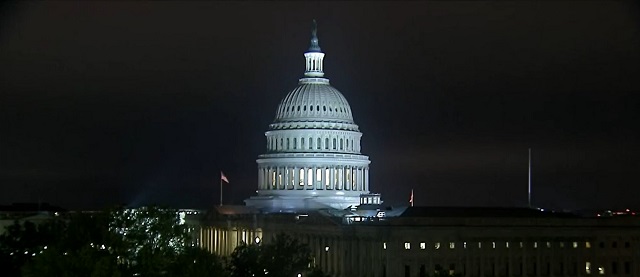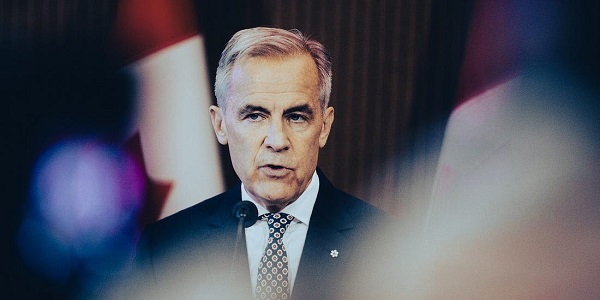Business
Companies Are Getting Back To Business And Backing Away From DEI

 From the Daily Caller News Foundation
From the Daily Caller News Foundation
Classic American companies like John Deere, Harley Davidson and Tractor Supply Co. are finally reevaluating Diversity, Equity, and Inclusion (DEI) initiatives. They are realizing that their consumers, many from rural, midwestern and working-class communities, don’t care for the DEI practices of corporate elites. They just want good service, reliable tractors and badass motorcycles.
The about-face is especially timely as the Supreme Court’s 2023 affirmative action decision prohibiting race-based college admissions has increased scrutiny of private sector DEI practices. This new legal climate, combined with the discovery of problematic DEI programs at major American companies, means that corporations are at long last feeling significant pressure to prioritize excellence and efficiency over faddish diversity metrics.
Companies operating in the free market have one purpose: to provide quality goods and services to consumers in order to make a profit. For too long, much of corporate America has focused on virtue signaling to appease the left’s cultural mandates. Now, business incentives are forcing a return to the bottom line.
The change began in June when conservative commentator Robby Starbuck took to social media to expose companies masquerading as all-American brands with traditional values. He first exposed Tractor Supply’s DEI practices and announced that he would be investigating a list of other companies considered exemplars of Americana.
In response, Tractor Supply customers began boycotting the company, resulting in an 8% decrease in its stock price (a $2.8 billion market value loss) over five days. This led Tractor Supply to announce later that month the termination of its DEI programming. The company promised to stop submitting data for the Human Rights Campaign’s Corporate Equality Index and withdrew sponsorship of LGBTQ+ pride events and voting campaigns, calling them “nonbusiness activities.”
Starbuck’s later exposure of John Deere’s DEI policies also caused the company to issue a statement announcing major cutbacks to their DEI programs. Harley Davidson, Jack Daniels and Lowe’s followed suit, preemptively terminating their DEI programs and standards.
All of these companies should be commended for abandoning excessive DEI and getting back to business.
Now, instead of requiring costly, time-intensive programs to prove their liberal bona fides, they can focus on delivering results for their customers. Free from worry about optics and bureaucratic compliance, they can hire the most qualified employees and let them rise to the top.
But these decisions are not without their naysayers. DEI proponents have labeled these moves as bullying from far-right extremists and claim that terminating these policies will encourage gender and race discrimination in the workplace.
This hysteria is unwarranted and relies on the absurd claim that without DEI standards, there can be no equality, inclusion or respect in the workplace. Of course, it is crucial that businesses cultivate a culture of respect and dignity. Employees should be educated on their protections and duties regarding civil rights and basic civility in the workplace. All of the companies reversing on DEI have remained committed to fostering respectful, safe cultures for their employees.
In fact, too much corporate DEI can wreak havoc on a company’s morale. In many cases, it can result in scapegoating certain groups of people for grievous wrongs none of them had a hand in committing. It can also lead to damaging intellectual conformity and groupthink. DEI hiring quotas, in particular, can lead to serious legal risk. All of this results in the complete opposite of DEI’s purported goals. Instead, it increases workplace disunity and harms true diversity.
Ultimately, the DEI policies at these classic American companies have proven to only burden corporations, frustrate employees and confuse customers. Companies should prioritize producing better quality products, lowering prices, and offering attractive wages and benefits for all employees, instead of pouring time and money into ineffective policies that do not represent the American values of their customer base. So long, discrimination disguised as diversity.
Devon Westhill is the president and general counsel for the Center for Equal Opportunity.
Automotive
Another sign Canada’s EV mandate is FAILING

By Dan McTeague
While other countries are moving away from EVs, the Carney government is doubling down.
Last week, it was reported that the feds are considering reimbursing car dealerships impacted by the sudden suspension of EV rebates. It’s becoming clear that Canada’s EV ambitions are failing as EV sales are plummeting and car manufacturers are backtracking on their EV plans.
It’s not too late for the Carney government to backdown from its EV mandate.
Dan McTeague explains.
Business
Is dirty Chinese money undermining Canada’s Arctic?

By Pauline Springer for Inside Policy
Pauline Springer warns that Canada’s lax rules on foreign investment are doing the dirty work for our geopolitical adversaries.
China’s interest in the Canadian Arctic is growing. The People’s Republic evidently views the Arctic as a strategic frontier rich in untapped resources and geopolitical leverage. China’s attempt to acquire stakes in mining operations such as the Izok Corridor and the Doris North gold mine in Nunavut indicate a broader strategy. China’s Arctic activity is a calculated bid to lock in influence under the friendly sounding banners of the Polar Silk Road and the Belt and Road Initiative, using investment and infrastructure to secure long-term influence.
Admittedly most Chinese investments in the Canadian Arctic to date have failed, are yet to be realized, or are relatively insignificant, but this should not lead Canadians to underestimate the threat or ignore the broader strategy behind China’s significant engagement across the Arctic. Some Canadian stakeholders view Chinese capital as a benign path to regional development and self-sufficiency but this is naïve and dangerous. The limited scale of successful, traceable Chinese investment to date should not be used as a justification for inaction against the clear threat to regional sovereignty.
National security threats arising from foreign investment led to the creation of the Investment Canada Act in early 2024, which requires disclosure of foreign investors and mandates transparency in the submission of investment information. With the passage of Bill C-34 in 2009, the Act was further strengthened to include specific timelines for security reviews and mechanisms for information-sharing with investigative bodies. These reforms were a late and incomplete admission that foreign capital is not just risky – it’s already rewriting the rules in sectors critical to national security.
Chinese state-linked and private entities have not only engaged in opaque investment practices but have also been implicated in large-scale money laundering operations across Canada. The money laundering schemes typically involve underground banking networks, convoluted ownership structures, and unregistered money service businesses, which funnel illicit capital into high-value assets such as real estate, infrastructure, and mining ventures. According to FINTRAC’s Laundering the Proceeds of Crime through Underground Banking Schemes, much of this money is moved through informal and untraceable financial channels, often linked to Chinese sources.
Money laundering typically unfolds in three stages: placement (introducing illicit funds into the financial system), layering (concealing the origin through complex transactions), and integration (reintroducing the money as seemingly legitimate income).
A particularly relevant mechanism in this context is trade-based money laundering (TBML) which enables illicit funds to be disguised as legitimate commerce through the manipulation of trade transactions.
In northern Canada, where oversight of mineral exports and industrial equipment imports is limited, the mining sector provides opportunities for trade based laundering of proceeds from transnational crime under the pretext of resource development. The Organized Crime and Corruption Reporting Project (OCCRP) reported that Chinese Triads and other transnational criminal organizations have laundered billions of dollars through Canadian financial and corporate systems, particularly in British Columbia.
This laundering activity is not a parallel issue to foreign investment – it is embedded within it. The same corporate tools used to facilitate transnational investments are often used to conceal the source of funds, mask ownership, and bypass national scrutiny. Shell companies and foreign actors can disguise themselves as Canadian or Indigenous-owned companies, while the actual control remains offshore.
One of the key enablers of this opacity is the phenomenon known as snow-washing: a term that refers to the use of Canada’s pristine international reputation to launder money through anonymous corporations. Canada’s corporate registration system still allows individuals to form companies without disclosing the true beneficial owner. As of late 2023, Canada ranked 70th in terms of ability to access information on companies, below Sri Lanka, El Salvador and Bahrain. Foreign actors can register companies, list local nominees as front directors, and then use these entities to invest in sensitive sectors with virtually no public oversight. Canada’s lax rules are doing the dirty work for our adversaries.
In early 2024, Canada introduced a requirement under the Canada Business Corporations Act (CBCA) to collect information on “individuals with significant control,” marking a step toward greater transparency. A federal public registry is in development. Crucially, publicly listed corporations are exempt from these disclosure requirements, and the system’s effectiveness hinges on alignment with provincial registries. Without full national coverage and seamless integration between federal and provincial systems, Canada’s transparency framework risks remaining fragmented, with loopholes that continue to benefit bad actors.
What might this look like operationally? The formation of such a shell company in Canada’s Arctic is relatively straightforward. A local entrepreneur registers a mining company in the High North, listing themselves as the owner. However, the actual financial backing originates from Chinese private or state-linked actors, who remain in the background. Due to the scale of their investment and the influence it affords, these individuals become de-facto beneficial owners. Yet, in the absence of effective monitoring mechanisms and a central, publicly accessible registry for beneficial ownership, the company continues to appear Canadian-owned. This poses a significant governance challenge: it is impossible to assess how many ostensibly local companies are, in fact, under foreign control and to what extent.
Bill C-34 aims to mitigate this risk by imposing minimum reporting requirements for foreign investment. Nonetheless, the challenge becomes even more acute when examined through the lens of money laundering. As previously discussed, there is substantial evidence that Chinese (including state-linked) entities have used Canada’s economy as a vehicle for laundering illicit funds. When those funds pass through complex corporate layers, where even identifying foreign ownership is already difficult, they can be easily embedded in the local economy. The profits, now “clean,” carry the appearance of legitimate origin, completing the cycle and reinforcing a system that is fundamentally opaque and unaccountable.
Crucially, the use of shell companies for money laundering in the Arctic is extraordinarily difficult to prove, as both the existence of shell structures and the laundering activities themselves are inherently opaque and challenging to detect. Canadian oversight bodies are playing catch-up while foreign actors exploit the shadows.
As a result, there is a serious lack of reliable data in the public domain on the actual extent of the problem. Investigative bodies face structural and legal obstacles in tracing ownership or financial flows, especially when they intersect with international jurisdictions or nominal Indigenous ownership structures that shield the real beneficiaries.
This lack of hard evidence makes it easy for policymakers to downplay or disregard the threat. However, the absence of precise numbers should not be misread as an absence of risk. On the contrary, the reasonable deduction that such structures are ripe for abuse – especially given China’s documented use of opaque financial networks and strategic investments – provides sufficient grounds to act. The deep concealment and the below-threshold tactics are precisely what make it dangerous.
The risks posed by unmonitored foreign investment stem, in part, from deeper domestic shortcomings. Chronic underfunding and a top-down governance model where decisions about the North are made in Ottawa, have left northern regions exposed. Canada’s northern provinces and territories, despite covering over 40 per cent of the national landmass, remain economically marginalized and structurally underdeveloped. This vacuum may invite external actors like China to step in where the federal government has long neglected to act. This further underscores the need for any policy response, whether from the RCMP, FINTRAC, or CSIS, to be coordinated with territorial and Indigenous governments, ensuring their meaningful involvement in the policymaking process and law enforcement actions.
Canada must act decisively on two fronts:
First, it must adopt robust transparency measures in corporate law and foreign investment screening, including following through with establishing a publicly accessible beneficial ownership registry on a national level, and closing loopholes that allow nominee directors or shell entities to hide foreign control.
Second, domestic investment must be scaled up dramatically. Canada needs to close the infrastructure and development gap in the Arctic by directly funding northern communities. Rather than simply increasing spending, policy should focus on making capital more accessible to northern and Indigenous-led projects through transparent, well-regulated mechanisms. This includes expanding grant and loan programs tailored to regional development, enhancing Indigenous financial institutions, and embedding anti-money laundering safeguards into all funding streams. These efforts would not only support reconciliation but also defend against covert financial influence.
Only strong domestic foundations and clear regulations can protect Canada from the corrosive threats of dirty foreign money. A threat exists where both intent and opportunity align; and the opportunity to launder money through shadow companies and foreign investment is undeniably present. The Canadian government must stop treating Arctic security as a seasonal concern, starting with the laws and loopholes that allow foreign money to buy silence, access, and influence in the Arctic.
Pauline Springer is a graduate researcher in International Relations specializing in Arctic security and Chinese influence.
-

 International2 days ago
International2 days agoMatt Walsh slams Trump administration’s move to bury Epstein sex trafficking scandal
-

 National2 days ago
National2 days agoDemocracy Watch Blows the Whistle on Carney’s Ethics Sham
-

 Energy1 day ago
Energy1 day agoIs The Carney Government Making Canadian Energy More “Investible”?
-

 John Stossel2 days ago
John Stossel2 days agoThe Green Industrial Complex: Power, Panic, and Profits
-

 Business1 day ago
Business1 day agoCompetition Bureau is right—Canada should open up competition in the air
-

 Immigration1 day ago
Immigration1 day agoUnregulated medical procedures? Price Edward Islanders Want Answers After Finding Biomedical Waste From PRC-Linked Monasteries
-

 Business1 day ago
Business1 day agoDemocracy Watchdog Says PM Carney’s “Ethics Screen” Actually “Hides His Participation” In Conflicted Investments
-

 Fraser Institute2 days ago
Fraser Institute2 days agoDemocracy waning in Canada due to federal policies








